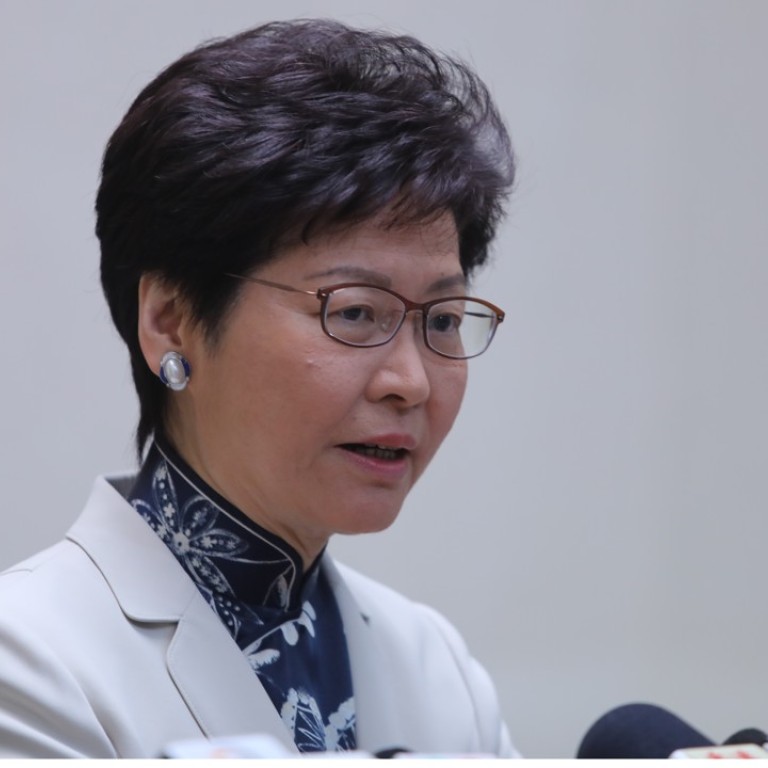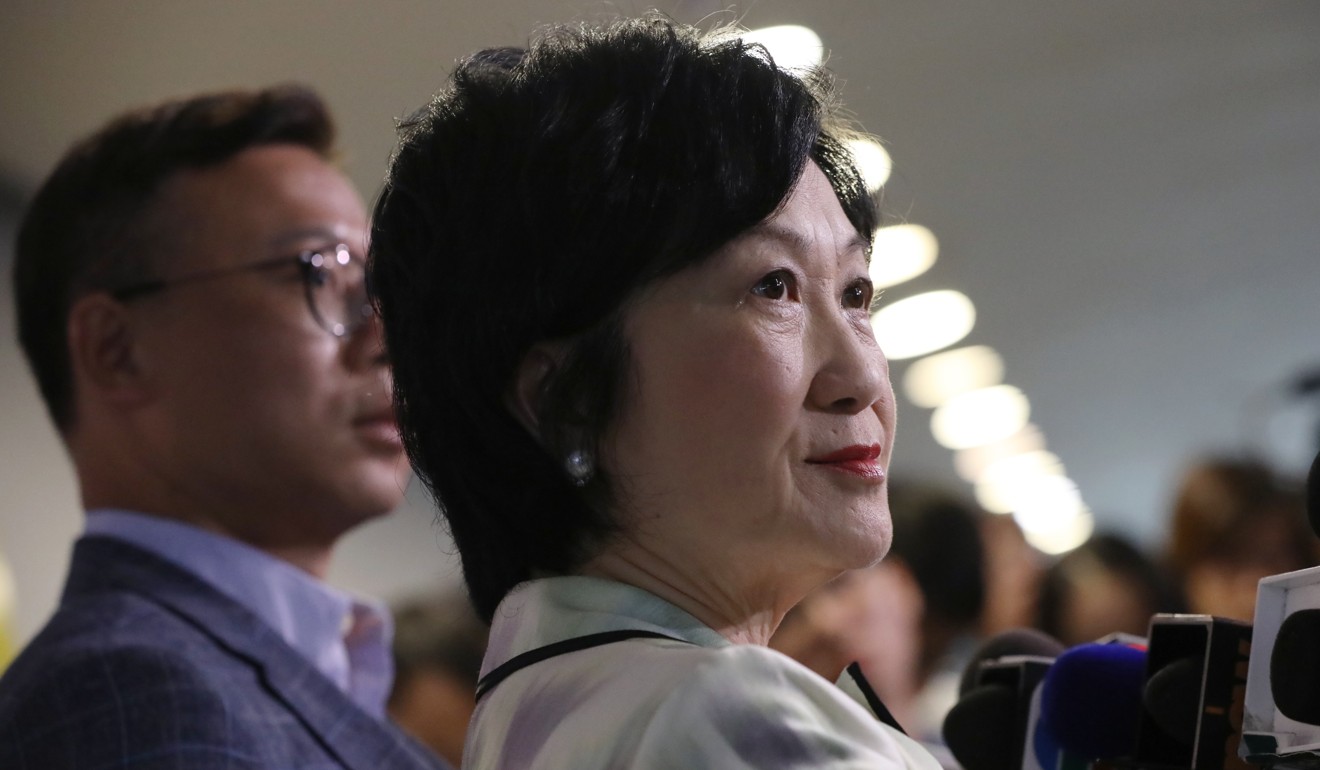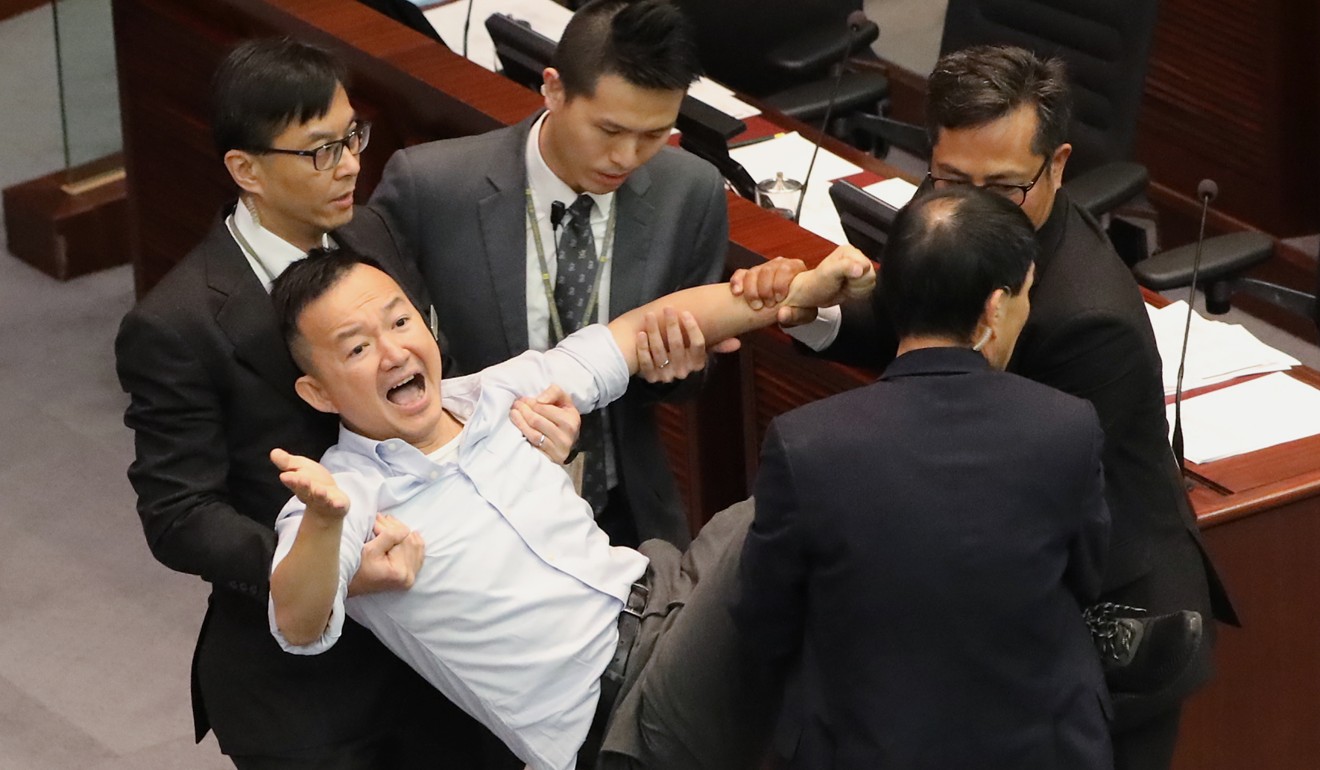
Hong Kong leader Carrie Lam voices support for Regina Ip’s handling of chaotic meeting on joint checkpoint plan for West Kowloon high-speed rail terminus
Chief executive says bills committee chairwoman took ‘very sensible approach’ at session, from which four opposition lawmakers were ejected
Ip caused a stir by granting each lawmaker only one minute for questions, having four protesting pro-democracy lawmakers removed from the room, and not offering at least a minute for each vote on amendments, the shortest taking just six seconds. All amendments moved by pan-democrats were voted down in the chaos.

The chief executive noted a total of 19 meetings had been held for what was a “simple bill” comprising only eight clauses.
“I think Mrs Ip has taken a very responsible approach in conducting the meetings and allowing the meetings to be concluded yesterday,” she said.
Ip, the New People’s Party chairwoman, is also a member of Exco, Lam’s cabinet.

Having gone through the bills committee stage of scrutiny, the plan has crossed its first major hurdle in the Legislative Council. The second reading of the Guangzhou-Shenzhen-Hong Kong Express Rail Link (Co-location) Bill is expected to resume in Legco on May 30 or June 6, when legislators will have their last chance to flag any concerns before it becomes law.
“If some legal professionals cannot accept that it is constitutional, I have no way to persuade them any more,” she said.
Lam’s show of support for Ip stood in sharp contrast to reactions from the pro-democracy camp.
Civic Party lawmaker Tanya Chan, also the convenor of the Co-location Concern Group, said Ip had been relatively fair in chairing previous meetings but her performance on Monday had deviated from standard procedure.
“You have experienced the Article 23 [controversy], have apologised to fellow citizens and pledged to turn over a new leaf,” Chan told Ip on a radio programme on Tuesday morning. “But yesterday, we saw the return of you [from the era of] Article 23.”
Article 23 national security law in Hong Kong could help win more democracy, government adviser Ronny Tong says
The administration was forced to shelve the bill after half a million people took to the streets fearing their freedoms and rights could be curbed.
Ip’s approach was heavily criticised by the pan-democrats and some Hongkongers, who described it as hardline and arrogant. She was one of the key targets for mockery during the protest march. Ip subsequently resigned.
Everyone else can vote [within seconds]. Are the pan-democrats particularly stupid?
Defending herself, Ip said after the meeting: “Everyone else can vote [within seconds]. Are the pan-democrats particularly stupid?”
Chan slammed the comment as inappropriate.
On Tuesday, Ip defended her remark: “I have only floated a question for society to consider. I am not criticising them.”
The conservative lawmaker maintained she had done nothing wrong as she was acting in accordance with the rules. She argued she had already been very lenient, and accused the pan-democrats of repeating their questions in meetings.
“We would be condemned by even more people if the express rail link could not begin operation as scheduled,” she said on the same radio show.


